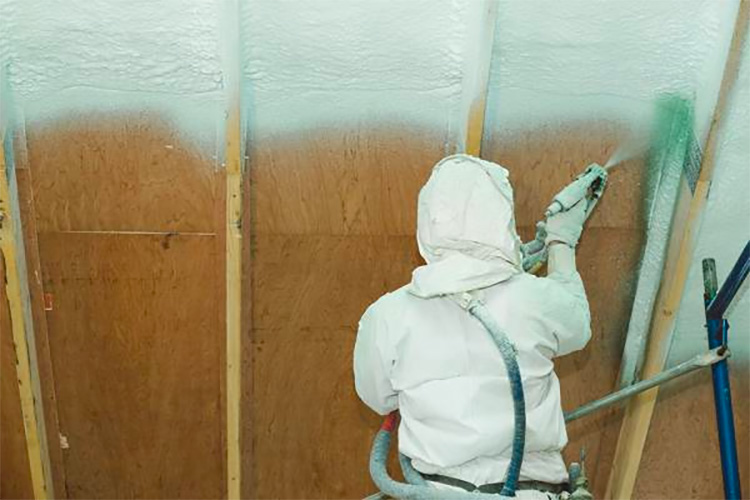Huntsman Building Solutions Announces Environmental Product Declaration for HEATLOK HFO and HEATLOK Soya HFO Closed Cell Spray Foam Systems
 Other News
Other News Subscribe to FREE newsletter
Subscribe to FREE newsletter
| Sep 20, 2021 |
GWP performance of products is 39% lower than spray foam industry average
Huntsman Building Solutions, a global leader in high performance, sustainable building envelope solutions, today announced an Environmental Product Declaration, or EPD, for the company’s popular HEATLOK HFO and HEATLOK Soya HFO closed cell spray foam systems. The independent, third-party document, completed by Sphera and certified by UL, provides objective and comparable information about the lifecycle impacts and emissions of the two spray foam products. HEATLOK HFO and HEATLOK Soya HFO both leverage 4th generations blowing agents, with the former product branded and distributed within the U.S. market and the latter is branded and distributed within Canada.
“The HEATLOK HFO products are the first and only spray foam system with a product-specific, Type III EPD which is independently completed and verified,” says Mickel Maalouf, senior representative of sustainable building science with Huntsman Building Solutions. “The objective assessment delivered through this EPD is key to ensuring an informed choice in the specification of sustainable insulation. It also contributes to USGBC LEED v4 credits and other green building rating systems.”
Completed in accordance with strict ISO standards, including ISO 14044, ISO 14040, ISO 14025, ISO 21930, and EN 15804, the new EPD is based on the spray foam system’s Life Cycle Assessment (LCA), which evaluates the products’ impacts in six key Environmental Impact Categories, one of which is Global Warming Potential, or GWP. As demonstrated by the EPD, HEATLOK HFO and HEATLOK Soya HFO GWP performance comparative to other insulation options is: 39% lower than the spray foam industry average; up to 96% lower than HFO extruded polystyrene; 77% lower than heavy density mineral wool; 52% lower than light density mineral wool; and 55% lower than unbonded loose fill and blown-in mineral wool. These comparisons account for embodied carbon before consideration of additional building energy savings and the resulting operation carbon emission saving made possible with spray foam.
HBS also developed a summary that evaluates different insulation products’ EPDs to assess and compare GWP of a wall assembly insulated solely with HEATLOK HFO/HEATLOK Soya HFO to assemblies insulated with mineral wool, HFO extruded polystyrene board stock and fiberglass insulation. The EPD comparison results show that by simply replacing all insulation types and membranes in assemblies A and B with the single product HEATLOK HFO/HEATLOK Soya HFO at an equivalent R-value, the assembly’s GWP is cut nearly in half (45% reduction in GWP).
Notably, embodied carbon emissions from building materials and construction represent 10% of global carbon emissions and building operations account for 28%.[i]
“When you consider that building construction and building operations account for almost 40% of global annual greenhouse gas emissions,[ii] it becomes crystal clear that the industry needs to build with better materials that reduce these figures,” says Doug Brady, vice president of global innovation and product management. “Climate change can no longer be ignored. High-performance insulations such as HEATLOK HFO are one key means to helping meet the global warming reduction goals outlined in the Paris Agreement. If designers, specifiers and builders can make informed decisions through the use of this EPD, then we believe it was well worth the effort.”
To learn more about Huntsman Building Solutions and the company’s complete suite of energy efficient building solutions, visit HuntsmanBuildingSolutions.com. Join the company on Twitter, LinkedIn, Facebook, Instagram and YouTube.
@Huntsman_Build #HuntsmanBuildingSolutions #Huntsman
For other relevant searches, you might want to try:
| (07 21 00) Thermal Insulation (07 21 29) Sprayed Insulation |


